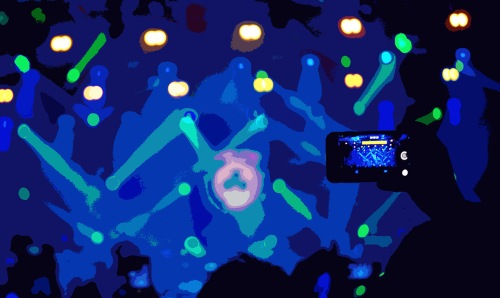Compound Injustice
A review of cases involving rap music in England and Wales.
Authors: Eithne Quinn (eithne.quinn@manchester.ac.uk), Erica Kane, Will Pritchard.

This report outlines how rap music is being used as evidence to build cases again children and young adults in serious crime prosecutions. Rap lyrics and videos are regularly used as prosecution evidence in youth violence cases in England and Wales.
The lyrics and videos selected by the prosecution typically have violent or anti-social themes, many from the popular ‘drill’ rap music genre, and are composed by one or more of the defendants or by one of their friends. This use is deeply controversial because of concerns that rap is an unreliable form of evidence, and that its use is unfairly prejudicial.
Despite mounting criticism, there is very little regulation or monitoring of how rap is being used as criminal evidence, and it continues to be used to build ‘gang-related’ prosecutions under highly contentious Secondary Liability laws. In turn, gang labels - which have been discredited as imprecise and racist even by some law enforcers - are ‘evidenced’ by rap music, often to build large Joint Enterprise trials in which more than one person is prosecuted for a single crime. The authors argue that this process risks innocent people being convicted of the most serious crimes.
In this research project, they found 68 cases between 2020-2023 that involved 252 defendants, the overwhelming majority of whom were Black or mixed race, in which rap music was used as evidence for serious charges - including murders.
Joint Enterprise cases involving rap music evidence were found to have a higher average number of defendants per case than those without a rap music soundtrack, which they say supports the suggestion that rap is encouraging overcharging and mischarging by prosecutors.
Those charged in cases involving rap evidence - including those charged with murder under secondary liability laws, which carries a life sentence - tend to be young and Black, suggesting that these groups are being targeted disproportionately. This lends weight to those who see the rising use of rap in cases as systematically racist, and who are raising the alarm about the overcriminalisation of young people - including children.
Endorsements
Tyrone Steele, Deputy Legal Director, JUSTICE
"Every child and young person deserves to have their voice heard and their creativity nourished. Yet the criminal justice system routinely disregards this basic standard for Black children, regarding their musical expression as criminal and suspicious. The consequences are clear, with families broken by prosecutions based on dubious evidence that is treated distinctly differently to other forms of art.
Rap music is one of the most popular genres of music in the UK – it’s time to end the marginalisation and punishment of its creators through its use as prosecution evidence. JUSTICE welcomes this important and timely report and its recommendations, which will undoubtedly help tackle the corrosive practice of portraying a genre of music as innately illegal and dangerous."
Liz Fekete, Director of the Institute of Race Relations
“Once again, three of the best researchers on the subject are doing what the state refuses to do. They have scrutinised the data on rap prosecutions, exposed the racism that lies within the law - particularly the joint enterprise doctrine - and suggested targeted reforms to end the wide-ranging criminalisation of Black expressive culture.”
Media coverage
Art, not evidence: Crown Prosecution Service urged to remove 'drill music' from guidance on gang-related offences - Monidipa Fouzder, The Law Society Gazette, 6 May 2024.
Rap music used as evidence in scores of trials in England and Wales, study finds - Jamie Grierson in The Guardian, 30 April 2024.
Behind bars: how rap lyrics are being used to convict Black British men - Will Pritchard in The Guardian, 21 June 2023. (Article trails some early findings from research.)
Academic articles
Racist inferences and flawed data: drill rap lyrics as criminal evidence in group prosecutions - Eithne Quinn in Race and Class (Vol 65, issue 4) April 2024. Open Access.
Funding
This University of Manchester project was funded by an Economic & Social Research Council (ESRC) IAA grant and the data was gathered by research associate Will Pritchard in partnership with Professor Eithne Quinn as part of the Arts and Humanities Research Council (AHRC) Prosecuting Rap project. The quantitative analysis was conducted by research associate Erica Kane.
